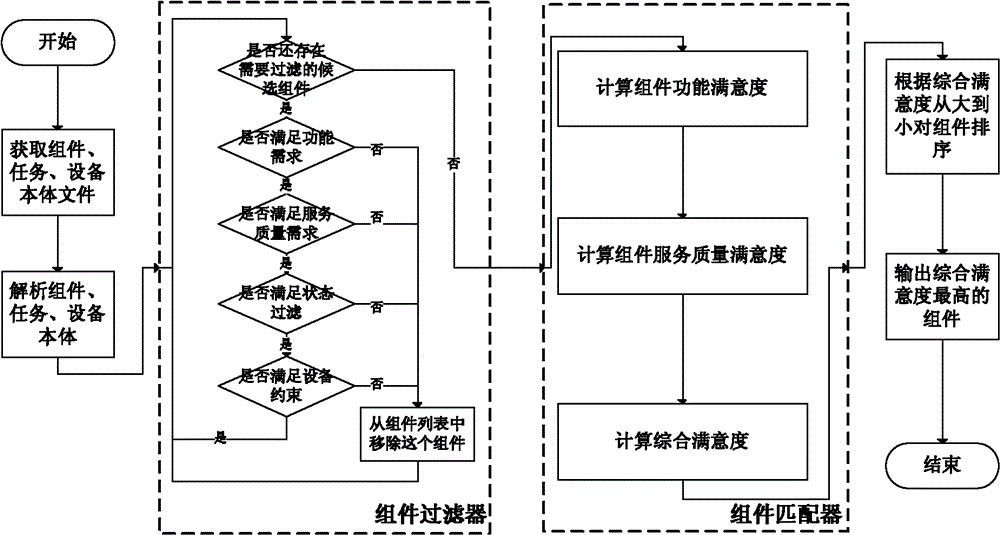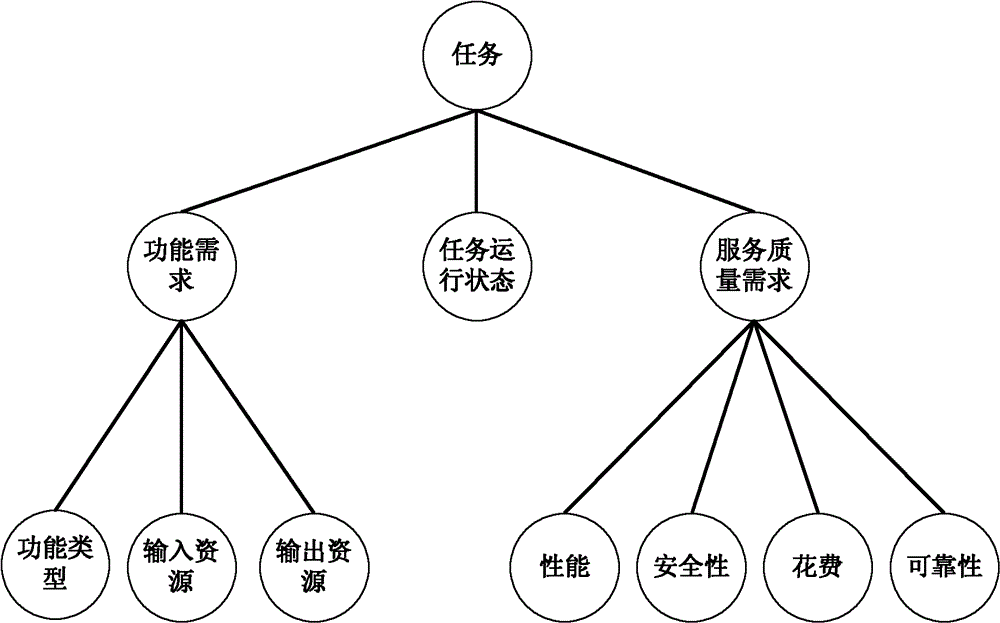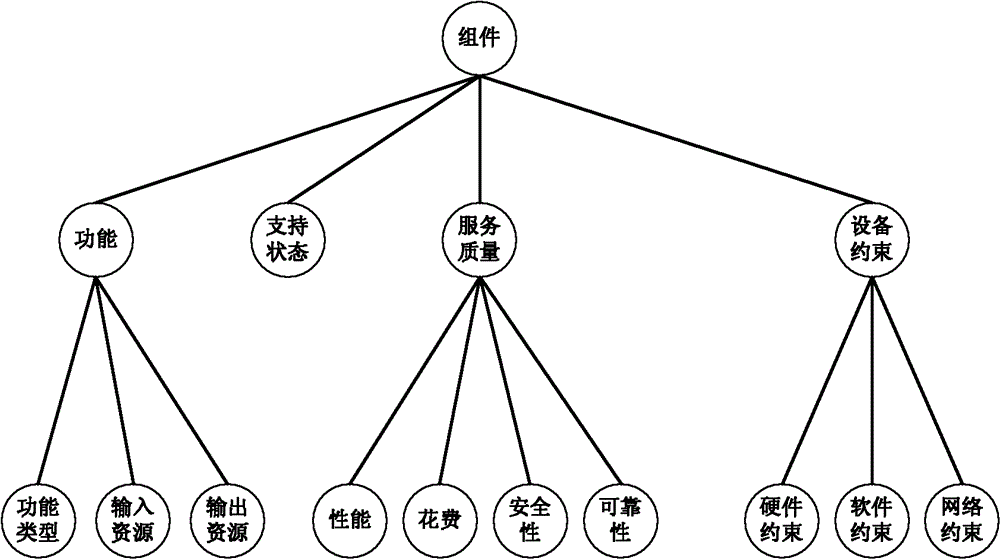Task immigration-orientated component semantic matching method
A semantic matching and component technology, applied in the field of component matching, can solve the problems of high user participation, inability to meet component selection, and poor scalability.
- Summary
- Abstract
- Description
- Claims
- Application Information
AI Technical Summary
Problems solved by technology
Method used
Image
Examples
Embodiment Construction
[0066] The steps of the present invention are as figure 1 shown.
[0067] (1) Use ontology network language OWL to describe tasks, components, and equipment semantically:
[0068] Use the ontology construction tool protégé to construct the semantic ontology, where the task ontology structure is as follows figure 2 , which is described by functional requirements, service quality requirements, and task running status. Functional requirements are described by function types, input resource types, and output resource types; service quality requirements are composed of four parts, namely performance, security, cost, and reliability. , in each quality of service part can also be subdivided: performance is described by delay, throughput, and interactivity; security is described by data encryption and authorization; cost is described by price; reliability is described by availability, reputation, and error rate Description; according to the above task structure description, we desi...
PUM
 Login to View More
Login to View More Abstract
Description
Claims
Application Information
 Login to View More
Login to View More - R&D
- Intellectual Property
- Life Sciences
- Materials
- Tech Scout
- Unparalleled Data Quality
- Higher Quality Content
- 60% Fewer Hallucinations
Browse by: Latest US Patents, China's latest patents, Technical Efficacy Thesaurus, Application Domain, Technology Topic, Popular Technical Reports.
© 2025 PatSnap. All rights reserved.Legal|Privacy policy|Modern Slavery Act Transparency Statement|Sitemap|About US| Contact US: help@patsnap.com



